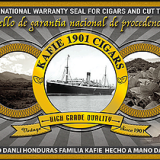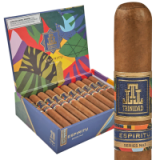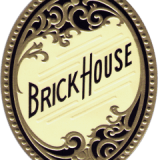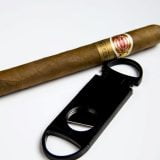When it comes to cigar smoking, there are many factors that can influence the quality of a smoke. From the type of tobacco used to the skill of the roller, all these components come together to form a unique and enjoyable experience. Evaluating cigar quality is an important part of any smoker’s journey, and one should never be taken lightly.
Contents:
At its core, evaluating cigar quality is about determining how well each component has been put together in order to make an enjoyable experience. The most basic element to consider when assessing cigars is the wrapper leaf – this outer layer determines much of a smoke’s flavor profile and overall character. A properly cured and fermented wrapper will produce a smooth yet flavorful draw while providing strength and complexity in equal measure.
The binder leaf also plays an integral role in how well-made a cigar is – this inner layer holds everything else together while imparting subtle nuances into the flavor profile. Different tobaccos have different characteristics which can greatly affect how good or bad a particular smoke might be; for instance, Cuban-seed binders tend to bring out more earthy notes whereas Connecticut-seed binders offer more sweetness on the palate.
Another key factor in evaluating cigar quality is construction – from hand rolling techniques to cutting procedures, these details all play their part in creating an exceptional product. In general, cigars with even seams will have better air flow than those with sloppy workmanship; similarly, cigars cut too deeply can cause uneven burning or excessive tar buildup at certain points during smoking time.
Fillers must also be taken into account when judging how good or bad a particular stick may be; here again different types of tobacco can create vastly different flavors depending on where they were grown and processed before making their way into your humidor (for example Nicaraguan filler tends towards being spicier whereas Dominican filler usually brings milder tones). Of course it’s always possible for two seemingly similar sticks to taste drastically different due to other variables such as age or storage conditions – so keep your eyes open for any unusual discrepancies.
Ultimately evaluating cigar quality requires knowledge about all these elements combined; however if done right you’ll find yourself enjoying some truly remarkable smokes without having had spent too much money along the way.
Types of Cigars
When it comes to cigars, the range of options available can seem overwhelming. Whether you are a seasoned aficionado or just getting started in the world of smoking, understanding the different types of cigars on offer is essential for making an informed decision.
The first factor to consider when evaluating a cigar is its shape and size. This is known as its vitola, and each size has specific characteristics that will influence how it smokes – from length and ring gauge (diameter) to other factors such as wrapper color, strength and flavor. Cigar sizes generally range from small ‘parejos’ like Petit Coronas up to larger Figurados like Double Robustos or Torpedoes. Parejos have straight sides while Figurados often feature tapered ends, closed feet or bulging shapes – all variations intended to affect the draw and burning characteristics of the cigar.
Wrapper leaves play another major role in determining the quality of a cigar; these come in a variety of colors including Claro (light tan), Colorado (medium brown), Maduro (dark brown) and Oscuro (very dark). These wrappers are made with different varieties of tobacco grown in different regions around the world – with some commanding higher prices due to their rarity. The overall blend affects not only flavor but also strength; lighter-colored wrappers tend towards milder tastes while darker ones usually carry more robust flavors associated with stronger nicotine levels.
Origins and Varieties
Cigars come in a variety of shapes, sizes, and flavors. They can be made from various tobaccos grown all around the world, including those cultivated in Cuba, Nicaragua, Dominican Republic and Honduras. Each country produces its own distinct blend of tobacco that lends to the cigar’s flavor profile. As such, it is important to understand what you are paying for when selecting cigars based on their origin.
When purchasing a cigar based on its country of origin, it is essential to consider the reputation of the manufacturer and distributor. A reputable source will ensure that you are getting a product with consistent quality over time. In addition to this reputation factor, look into where each type of tobacco used was harvested – some countries may have more ideal growing conditions than others which can make or break your experience with the cigar.
It pays to do research into other varieties available within each region so you can narrow down your choices based on reviews from other smokers who have sampled similar cigars as well as personal preferences such as size and strength level desired in a particular smoke session. Ultimately by taking these factors into consideration prior to purchase you can guarantee that you’re making an informed decision about your investment in quality cigars.
Factors That Affect Flavor
When smoking a cigar, flavor is arguably the most important factor to consider. With that being said, there are many different factors that affect the flavor of your cigar. One key factor is the type of tobacco used in the blend. Different types of tobacco have different levels of nicotine and offer distinct tastes depending on where they were grown. For instance, Cuban cigars use Nicaraguan or Honduran tobaccos which are known for their earthy flavors with hints of sweetness and spiciness.
In addition to this, another important element in determining taste is the aging process. Cigars can be aged anywhere from a few months up to several years before they reach peak maturity and taste their best. This allows them to develop a more complex flavor profile by allowing all its ingredients to mix together over time and create something truly special when smoked. It’s also worth considering how well-made each individual cigar is as even small details like construction can play an essential role in how much flavor you get out of it when lit up.
Humidity plays a major role in how flavorful your cigar will be too as it helps keep them moist so that all those unique flavors don’t dry out or become bitter due to lack of moisture during storage or transport. It’s important to make sure your cigars are kept at 70% humidity at all times otherwise they could lose some precious taste while not being properly taken care off.
Judging Quality by Sight
Visually judging the quality of a cigar is an art form. While it’s not as precise or scientific as other methods, experienced smokers are usually able to determine the relative quality of a cigar based on its appearance alone. The wrapper should be free from blemishes and flaws, with no discoloration or obvious signs of damage. The wrapper should feel supple and even when handled gently; if there is any brittleness present, it may indicate that the tobacco was dried too quickly during curing. The shape and size should also appear consistent throughout; irregularities may suggest that the rolling process was rushed or careless.
The foot of the cigar can also tell you much about its quality before you light up – look for an even burn across all sides and check for any soft spots where there could be air pockets within the filler leaves. Examine how firmly packed each stick is – tightly-rolled cigars will hold their shape better when smoked than those which have been loosely constructed. If possible, ask your tobacconist if they have a sample pack available so you can test out different brands to find one that suits your preferences best in terms of flavor profile and smoke production.
Take note of how well-presented each stick looks in its packaging; this can give insight into whether manufacturers pay attention to detail when assembling them for sale – boxes with neatly arranged cigars often signal higher craftsmanship levels than those which are crammed together haphazardly. With these simple tips in mind, you’ll soon become adept at assessing quality by sight.
The Aging Process
When purchasing a cigar, it is important to know what you are paying for. One of the most critical factors that determines the quality of a cigar is its aging process. Before a cigar can be sold, it must first go through an extensive aging period. During this time, tobacco leaves are carefully monitored and stored in optimal conditions to ensure they reach their peak flavor profile. The length of time required for proper aging depends on the type of leaf used and desired flavor profile but can range anywhere from six months up to two years or more in some cases.
During the aging process, tobaccos undergo chemical reactions which create flavors unique to each individual variety as well as develop complexity and balance within blends. This allows manufacturers to control the intensity of flavors present in each cigar while ensuring consistency throughout all batches produced from a given blend. Fermentation processes further refine tobaccos by decreasing bitterness and acidity levels while increasing sweetness notes present in the smoke.
Ultimately, when considering how much you should pay for your cigars it’s important to factor in how much effort has gone into perfecting them through various stages such as selecting premium-grade tobaccos, fermenting them properly and allowing ample time for proper aging before releasing them onto store shelves where they can be enjoyed by aficionados around the world.
How to Find the Best Deals
Finding the best deals on cigars can be a tricky endeavor. Many retailers will try to convince you that their product is superior and worth more than what they are asking, but how do you know if it’s really true? There are a few different strategies for determining the quality of cigars without breaking your budget.
First, look into online reviews from experienced cigar aficionados who have tried out various products. This can give you an idea of what kind of reputation a certain cigar has in terms of flavor, burn time, and overall experience. Be sure to read multiple reviews so that you can get an accurate picture of what other people think about a particular cigar before making your purchase decision.
Another option is to join discussion forums or chat rooms dedicated to cigar enthusiasts. Here, you’ll find like-minded individuals who can provide unbiased opinions on which brands offer the most value for money. They may even be able to point you towards specific deals or discounts that would make your purchase more affordable without sacrificing quality in any way.
Don’t forget about local brick-and-mortar stores as well as specialty tobacco shops which often carry rarer items at discounted prices due to bulk orders or long-term relationships with manufacturers and distributors. Visiting these establishments in person also gives you the opportunity to ask questions and sample different products before committing yourself financially – something that isn’t always possible when shopping online.
Storing Your Collection
When it comes to enjoying cigars, there is much more to the experience than just smoking. A true aficionado will appreciate the importance of properly storing their collection for optimum taste and longevity. With that in mind, here are a few tips on how best to care for your prized possessions:
First and foremost, invest in quality humidors. Humidors are specially designed cases that keep your cigars at a consistent temperature and humidity level, thereby preserving freshness and flavor. As with most things cigar-related, you get what you pay for; go cheap on this purchase at your own peril. Look for Spanish cedar interiors as they absorb excess moisture while protecting against infestation by tobacco beetles or other pests.
It’s also important to use an accurate hygrometer (humidity gauge) inside the humidor so you can ensure your collection stays within optimal conditions – usually between 65% to 75%. If necessary add some distilled water or propylene glycol solution (available from any tobacconist) depending on the relative humidity reading from the hygrometer. This helps maintain an even balance of moisture within the container over time.
Finally don’t overcrowd your humidor – leave enough space between each cigar so air can circulate evenly throughout its interior. Doing this prevents mold growth as well as allowing easier access when looking for specific sticks without having to remove them all first.
Enjoyment Above All
When it comes to cigar smoking, the most important thing is enjoying your experience. For some, that means choosing cigars with high-quality tobaccos and complex flavors. Others may prefer a milder smoke or something with more of a punch. Regardless of what you choose, it’s essential to understand what you’re paying for so that you can make an informed decision about which cigar best suits your needs.
One way to evaluate the quality of a cigar is by considering its appearance and aroma before lighting up. A well-made stogie will have a uniform color throughout its wrapper leaf and no visible blemishes or tears. The smell should be earthy and rich without being overly pungent or acrid. If the aroma isn’t pleasing then it’s probably not worth investing in; however, even if all these criteria are met, this doesn’t guarantee an enjoyable experience once lit up.
It’s also important to consider construction when assessing the quality of a cigar – after all, nothing ruins a good smoke like constantly needing to re-light due to uneven burning or draw issues caused by poor rolling techniques. An experienced smoker will look out for certain signs such as whether there are any soft spots on the body indicating over-humidification during storage and whether there are any veins running through the filler tobacco leaves that could cause burning problems later on down the line. Taking these factors into consideration when making your purchase can help ensure satisfaction from start to finish.











